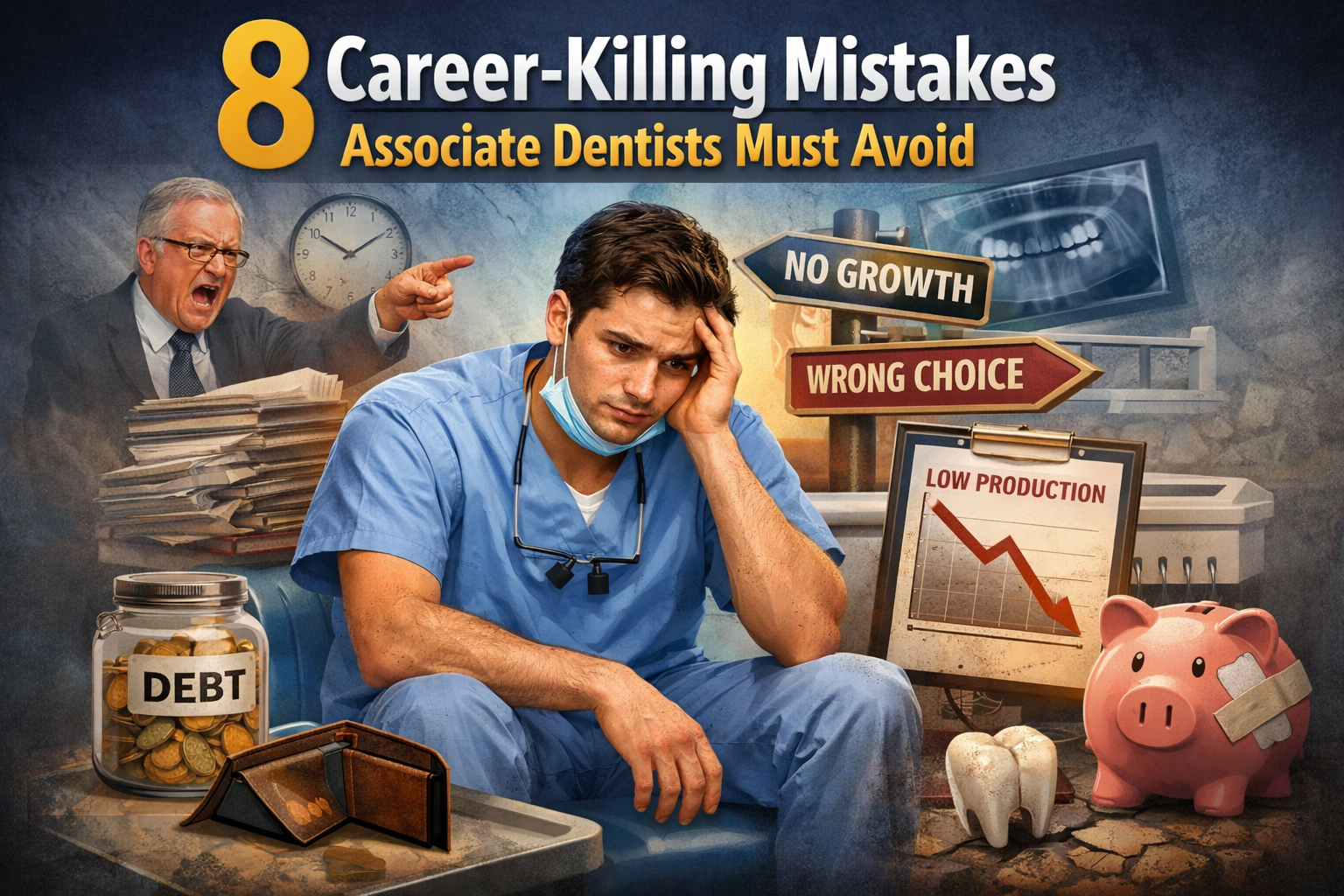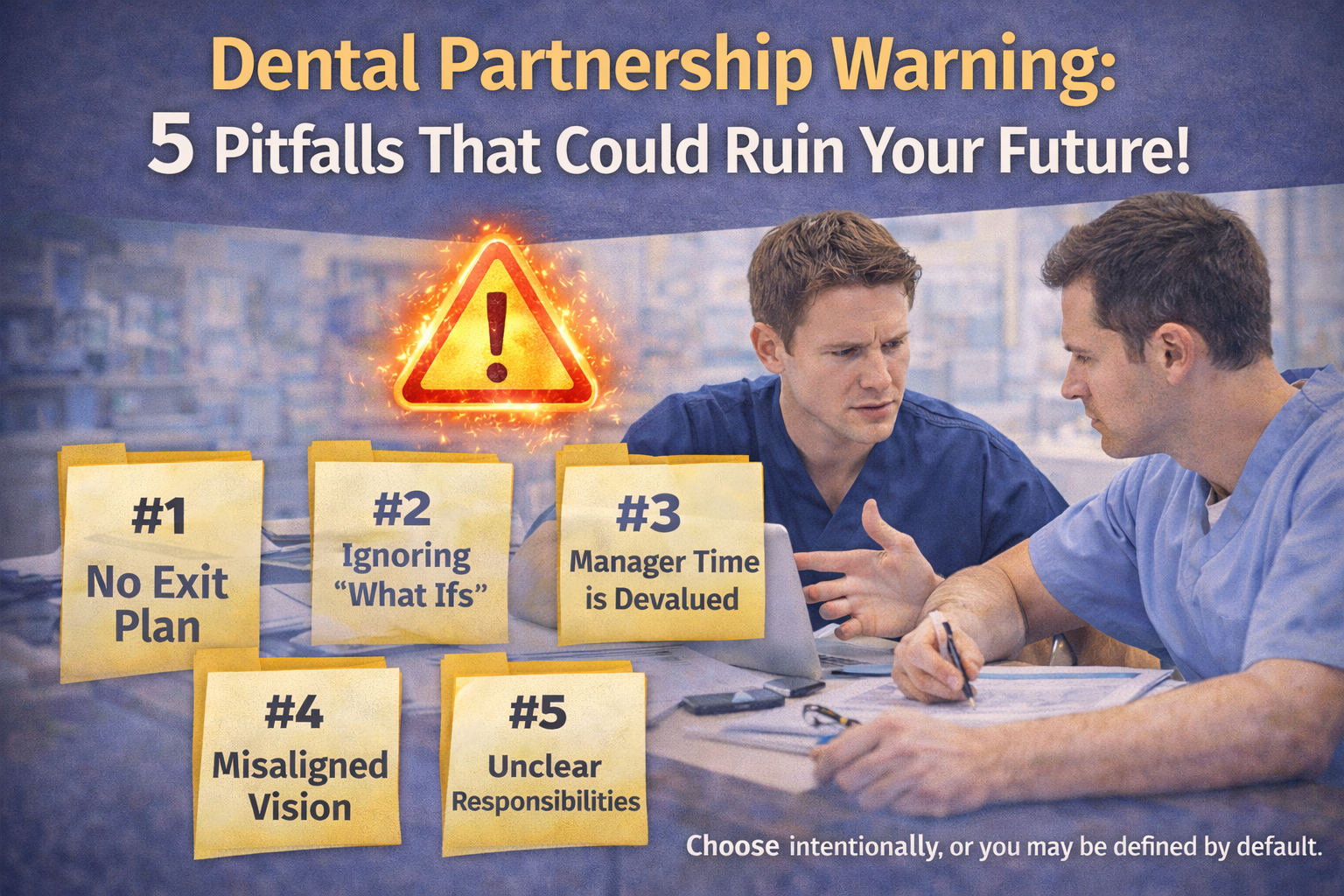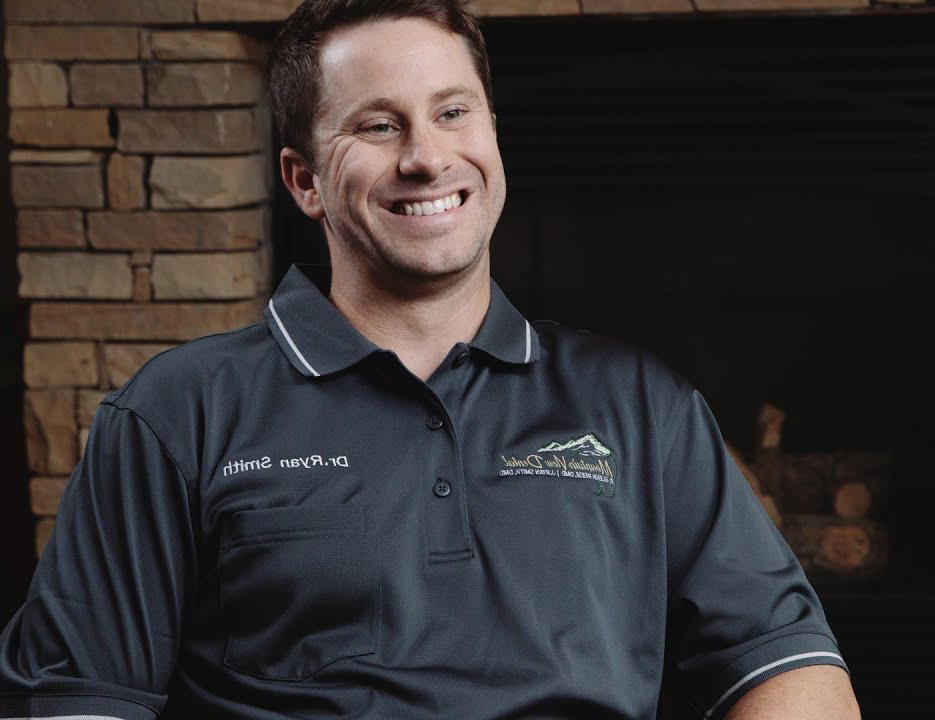Are you an associate dentist feeling frustrated, stagnant, or on the verge of burnout? Do you feel like you’re not achieving the financial success or professional fulfillment you expected?
You’re not alone. I’ve seen countless associates—talented clinicians with huge potential—fall into the same career-killing traps time and time again. These aren’t minor missteps; they are fundamental mistakes that can derail a promising career before it ever truly takes off.
Understanding these pitfalls is the first step toward building a roadmap for massive success. Whether you dream of ownership or want to become a highly compensated and respected career associate, avoiding these eight mistakes is non-negotiable.
Mistake #1: Choosing a Practice That is a Terrible Fit
The problems often start before you even see your first patient. Too many associates focus solely on the promised pay or the location, failing to honestly assess if the practice’s culture and clinical philosophy are a match for their personality and current skill set.
- A new grad with developing skills joins a high-end, complex restorative practice.
- A clinically-focused associate joins a “dental mill” that thrives on volume.
- An introverted associate joins a practice where high-value case acceptance is everything.
These are all recipes for disaster. You must be brutally honest about who you are, what you’re capable of right now, and the environment where you will thrive. A fundamental mismatch will lead to failure and unhappiness.
Mistake #2: Not Having an Open Mind
Associates often arrive carrying baggage from their previous experiences. They give too much weight to “how we used to do it” and are unwilling to adapt to the new practice’s established systems.
Questioning materials, workflows, or scheduling from a place of judgment immediately creates friction. You must walk into a new role with humility, ready to learn and adapt. Your primary goal is to master their systems before you ever think about suggesting improvements.
Mistake #3: Forgetting Who the Boss Is
This is a tough but necessary reality check. As an associate, your job is to help the owner succeed and align with their vision. Too many associates act like they own the place, creating conflict and demonstrating that they aren’t a team player.
If you want it to be all about your philosophies and your rules, you need to own your own practice. As an associate, you are a key part of a team led by the owner. Making them and the practice successful must be a top priority.
Mistake #4: Having Unrealistic Pay Expectations
The expectation of a packed, high-value schedule from day one is almost always a fantasy. It takes time for a practice to integrate a new associate and build the patient trust needed to fill their schedule.
You must accept that you have to be an active participant in this process. It is not solely the owner’s responsibility to generate work for you. You earn a full schedule by building rapport, improving your case acceptance, and being a productive, engaged member of the team.
Mistake #5: Being Too Slow to Increase Your Skills
Getting comfortable with bread-and-butter dentistry is a career death sentence. You cannot build significant wealth or become a highly valuable clinician by only doing fillings and simple crowns forever.
Your personal economy as a dentist is directly tied to the complexity of the problems you can solve. You must be consistently and aggressively increasing your skill set. Implants, clear aligners, endo, surgical extractions—this is where you build real value, whether you’re an owner or not.
Mistake #6: Not Having Goals or a Vision
Just showing up day after day with no real plan leads to stagnation and burnout. You must have a vision for where you want to be in 5 or 10 years. Set clear clinical, financial, and leadership goals. Without a plan for your own future, you’ll get trapped in a 9-to-5 rhythm that quickly becomes unfulfilling.
Mistake #7: Not Saving Enough Money
This is a critical error. Living paycheck to paycheck as an associate puts your financial future at serious risk. While owners build equity in their practice, your primary wealth-building tool is your savings and investments. You should be saving a significant portion of your income—at least 20%—by consciously living below your means.
Mistake #8: Not Taking Ownership (The Most Important)
This is the mindset that underlies all the other mistakes: the belief that because you are not the owner, problems are someone else’s fault.
- Schedule isn’t full? It’s the front office’s fault.
- Production is low? It’s the economy’s fault.
- Assistant isn’t great? It’s the owner’s fault.
This victim mentality will kill your career. You must take 100% ownership of your situation. Ask yourself: What can I do? How can I improve my case acceptance? How can I be more efficient? How can I be a problem-solver instead of a blamer?
The associates who adopt this “owner’s mindset” are the ones who become indispensable, get the best opportunities, and build the most successful and rewarding careers.








